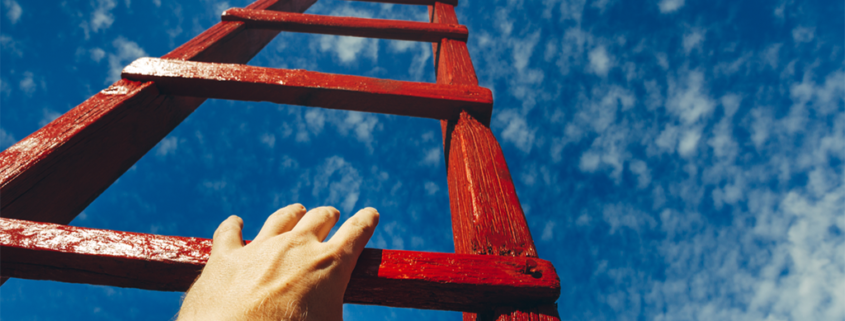How Growth Mindset and Curiosity Drive High Performance
What happens when a bunch of business experts, researchers, educators, and a psychologist walk into a room?
Exactly what you’d expect: they nerd out on research.
Such was the scene at the now-defunct CEB Leadership Academies faculty retreat for years. The retreats were a rare opportunity to connect with far-flung colleagues and share best practices from our past year in the classroom with business leaders around the globe. Perhaps more importantly, it’s where I was introduced to the concept of Growth Mindset.
Back in January, I shared an article describing how Carol Dweck’s ground-breaking research on Growth Mindset—with an emphasis on curiosity—helped transform Microsoft from a “know-it-all” culture to a “learn-it-all” one focused more on exploration and innovation. At Leadership & Co., we find Growth Mindset intriguing as it aligns with our focus on curiosity as well as the competencies we develop in our program—effective collaboration, investigation, and persuasion skills all depend heavily on being curious and embracing Growth Mindset behaviors.
Since publishing that article, I’ve only heard business leaders express even greater interest in learning about Growth Mindset. And who better to help than Dr. Eve Meceda, a psychologist, Leadership & Co. founding faculty member, and the person who introduced me to Growth Mindset. She regularly trains and speaks on the topic to business leaders around the globe. Below, she shares her personal experience and expertise on the subject.
Jamie Hogg: How did you discover Growth Mindset?
Dr. Eve Meceda: One of my long-term clients, an international manufacturing firm, asked me to teach a module on Mindset as part of their leadership development program. To be honest, my first thought was, “Oh, great—another non-psychologist gets their hands on a pop psychology book, and now I have to teach it in a way that doesn’t suck!” Needless to say, I didn’t go into it with the best mindset. I read the first part of the book thinking, “This is complete BS. Oh, sure—there are two different mindsets people can have. A less helpful one, and a more helpful one. Not only do I not have this more helpful mindset, but also I don’t even know anybody with this mindset. This isn’t a thing. They’re just making this up!” Then, about 30 pages into the book, I realized the less helpful mindset they were talking about, Fixed Mindset, was… me. I read the rest of the book really differently, and I’ve been a big fan of the topic ever since.
JH: For the uninitiated, how would you describe Growth Mindset?
EM: Growth Mindset is the belief that intelligence and skills are largely a result of learning and effort rather than exclusively hard-wired traits with which we’re born. This belief leads to a predictable set of behaviors that, in turn, facilitate high performance.
JH: What are the key traits and behaviors of Growth Mindset?
EM: There are six behaviors of Growth Mindset:
- Desire to learn
- Love challenges
- Keep trying
- Embrace effort
- Leverage feedback
- Be inspired by others
If we distill these concepts to one essential element that incorporates all of them, it’d be “curiosity.”
JH: How important is the concept of curiosity to Growth Mindset?
EM: Curiosity is at the core of Growth Mindset. When I describe Mindset in a single word, I describe Fixed Mindset as “certainty” and Growth Mindset as “curiosity.” The goal is to remain open to information from all sources and to consider that information as objectively as possible in the pursuit of optimal outcomes. Readers who clicked on this article curious about a topic they don’t understand well are, in fact, demonstrating a key behavior of Growth Mindset—a desire to learn.
JH: Disruption—and the need to be more innovative—is on the minds of many business leaders. How does cultivating Growth Mindset result in more creative thinking?
EM: In 2014, I authored a book on the insight-generation process. The questions I tackle include: how do we go from being “stuck” on a problem or decision to having sudden and complete clarity around the solution? And how do we accelerate and facilitate the process of achieving “a-ha moments?”
As it turns out, Fixed Mindset is a large part of why we get stuck on problems or decisions in the first place. Fixed Mindset prefers the “most obvious” answer or “the most likely” answer, and when those answers aren’t correct, it gets stuck.
Growth Mindset massively facilitates our ability to get un-stuck. It allows us to experiment, test, and try a multitude of ideas that Fixed Mindset would dismiss out-of-hand. Growth Mindset simply accepts that the answer must be something else and is willing to explore (a concept Leadership & Co. calls curious exploration). It also prevents us from getting stuck in the first place by keeping us open to possibilities. It prevents us from getting attached to our own ideas and theories, and allows us to objectively consider the ideas of others, including ideas that may initially seem far-fetched. These moments of insight are often the spark we need, the genesis of innovation, and the core of creative thinking.
JH: If I’m a business leader, I might find this interesting, but why should I care?
EM: Business leaders hopefully care about high performance at the individual and organizational level. And that’s what Growth Mindset yields—better performance from individuals and organizations. If your focus is being obsessed with learning and improvement, giving 100% effort, leveraging feedback, and being inspired by others, then you’re going to experience significantly higher performance than folks who don’t do those things.
JH: From an employee perspective that sounds great, but what do I get out of Growth Mindset?
EM: Again, it’s a performance issue. The behaviors that stem from Growth Mindset help ensure we each reach our potential and highest level of performance, in both our professional and personal lives. My belief—and certainly the belief of Growth Mindset—is that full preparation + full effort + learning will lead you to reach your potential. There is no other way to get there, and Growth Mindset provides you with the belief system that leads you to engage in these behaviors. One example I like comes from Peyton Manning’s speech when he retired as the Denver Broncos quarterback following their Super Bowl win in 2016. He said, “There were other players who were more talented than me…but nobody could out-prepare me.” This was a wonderful example of Growth Mindset in action. He wasn’t claiming to have been dealt the best genetic cards in the league, but he was saying that he did everything he possibly could to reach his potential through full preparation + full effort + learning.
It’s also a vastly more enjoyable way to live your life!


